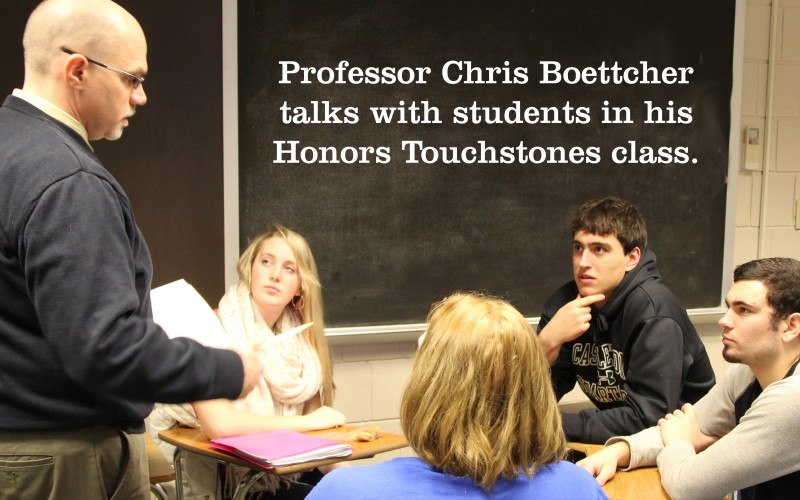Faculty Receive Course Development Grant

Beginning an exciting collaboration among faculty members, Castleton University was the recent recipient of a grant from the Davis Educational Foundation through Campus Compact to participate in the Campuses for Environmental Stewardship Program. Complementing Castleton’s focus on community engagement and civic mindedness, the program involves developing and implementing civic engagement courses with an emphasis on environmental stewardship and sustainability.
Dean of Arts, Sciences, and Community Engagement Ingrid Johnston-Robledo is serving as the team leader for the project, working closely with Associate Professor of Geography Scott Roper, Economics Professor Judith Robinson, Assistant Professor of English Chris Boettcher, Sociology Professor Paul Derby and Part-time Professor of Archeology Matt Moriarty.
“The grant is allowing the Environmental Studies program to become more community-oriented. We already had several courses affiliated with the program that were designated as civic-engagement, but this expands the presence of Environmental Studies in the Civic Engagement program,” said Professor Roper, adding that as a result of the cross over additional students have shown interest and enrolled in the University’s Civic Engagement Certificate program.
Still in the early stages, the six Castleton faculty members attended a faculty development institute and training at the University of New England in November.
In the months since returning back to campus, the participating faculty members have also teamed up to create innovative inter-linking courses for the spring 2016 semester. Special courses include Building Environmental Sustainability, Globalization and the Environment, Expository and Argumentative Writing, and Vermont’s Ancient Past.
“We’re all collaborating where we see places where we can collaborate,” explained Roper. “Students are excited about the ways in which our classes overlap, and it’s all really gratifying to see.”
Through the program, the group is hoping to forge closer ties with the community and encourage faculty to communicate across traditional disciplinary boundaries.
“This project is so exciting because it reflects best practices in higher education as well as opportunities we want to expand at Castleton,” said Project Manager Dean Johnston-Robledo. “Students are exploring issues of environmental stewardship from multiple disciplinary perspectives, engaged with their communities, and gaining valuable leadership are problem solving stills.”